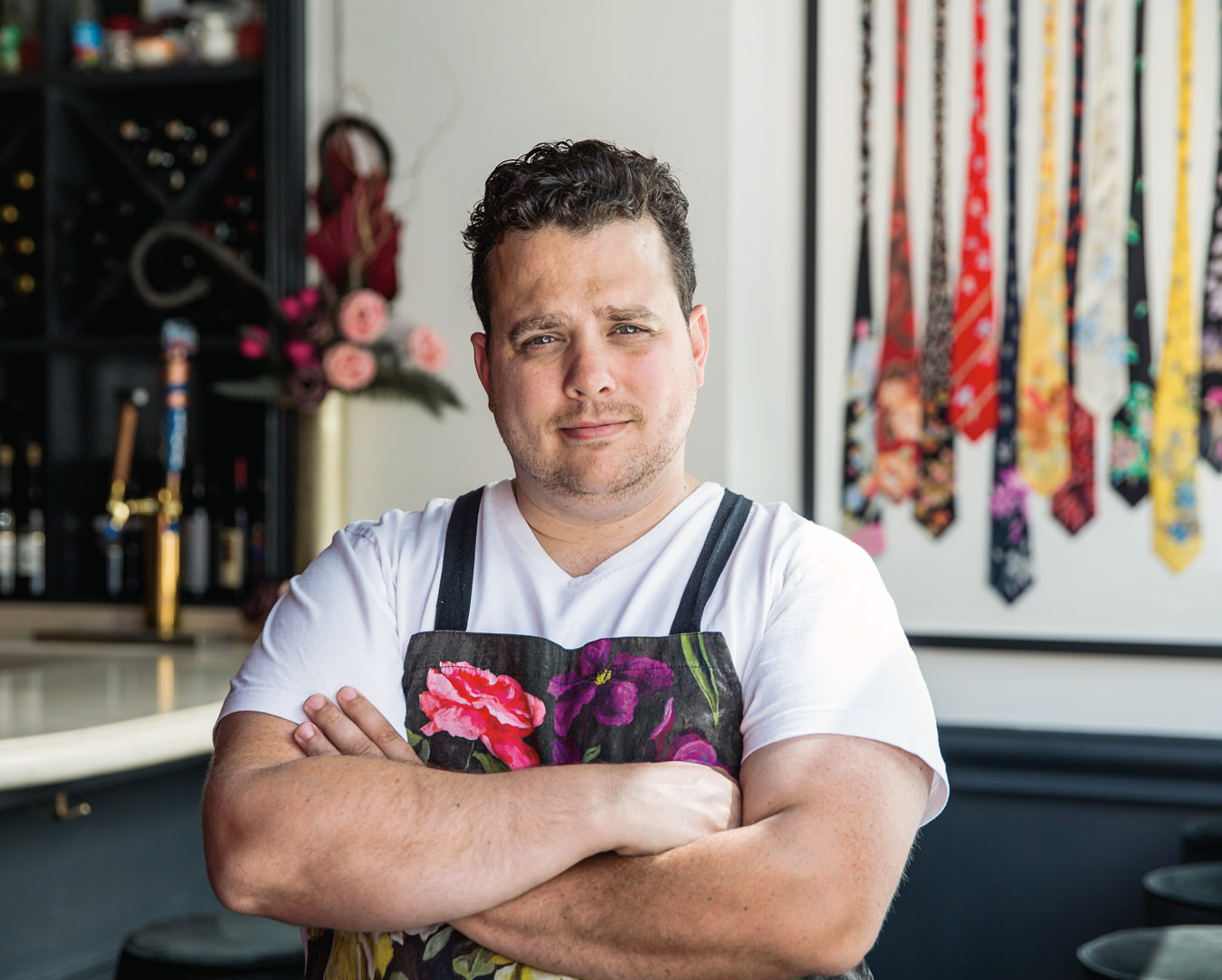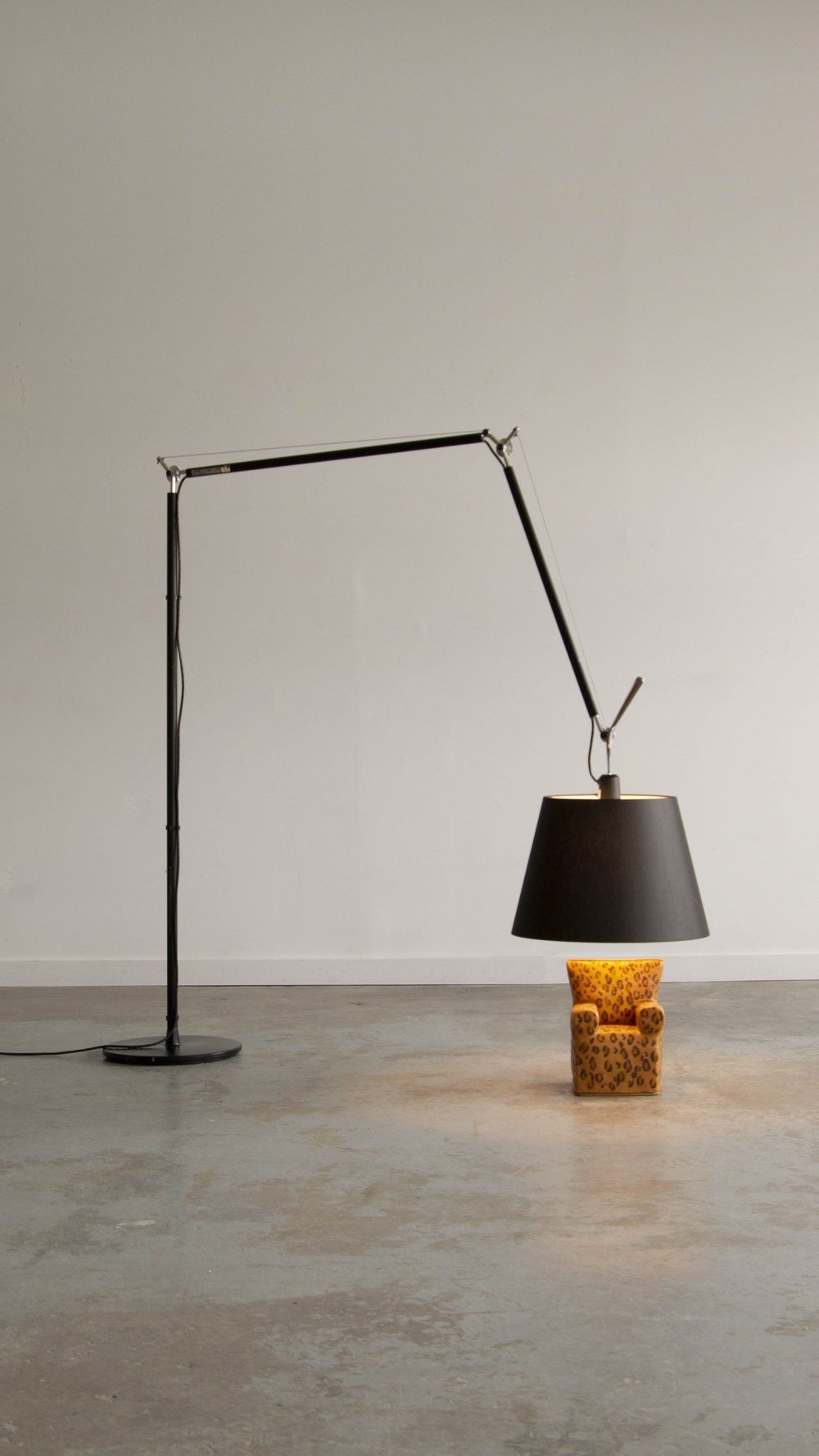-
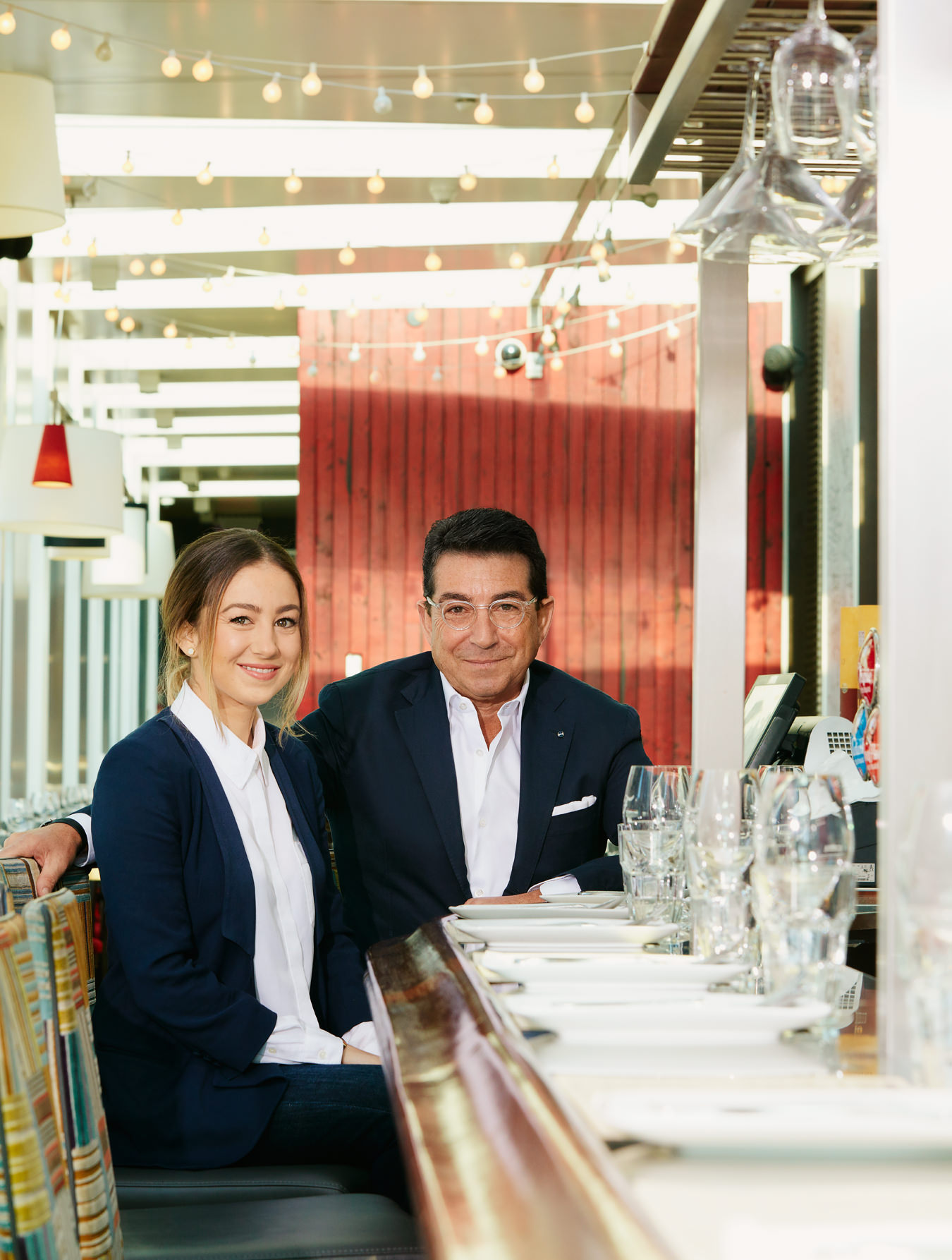
Carlos Ferreira along with his daughter Sandra, are at the helm of Groupe Ferreira’s restaurant empire.
-
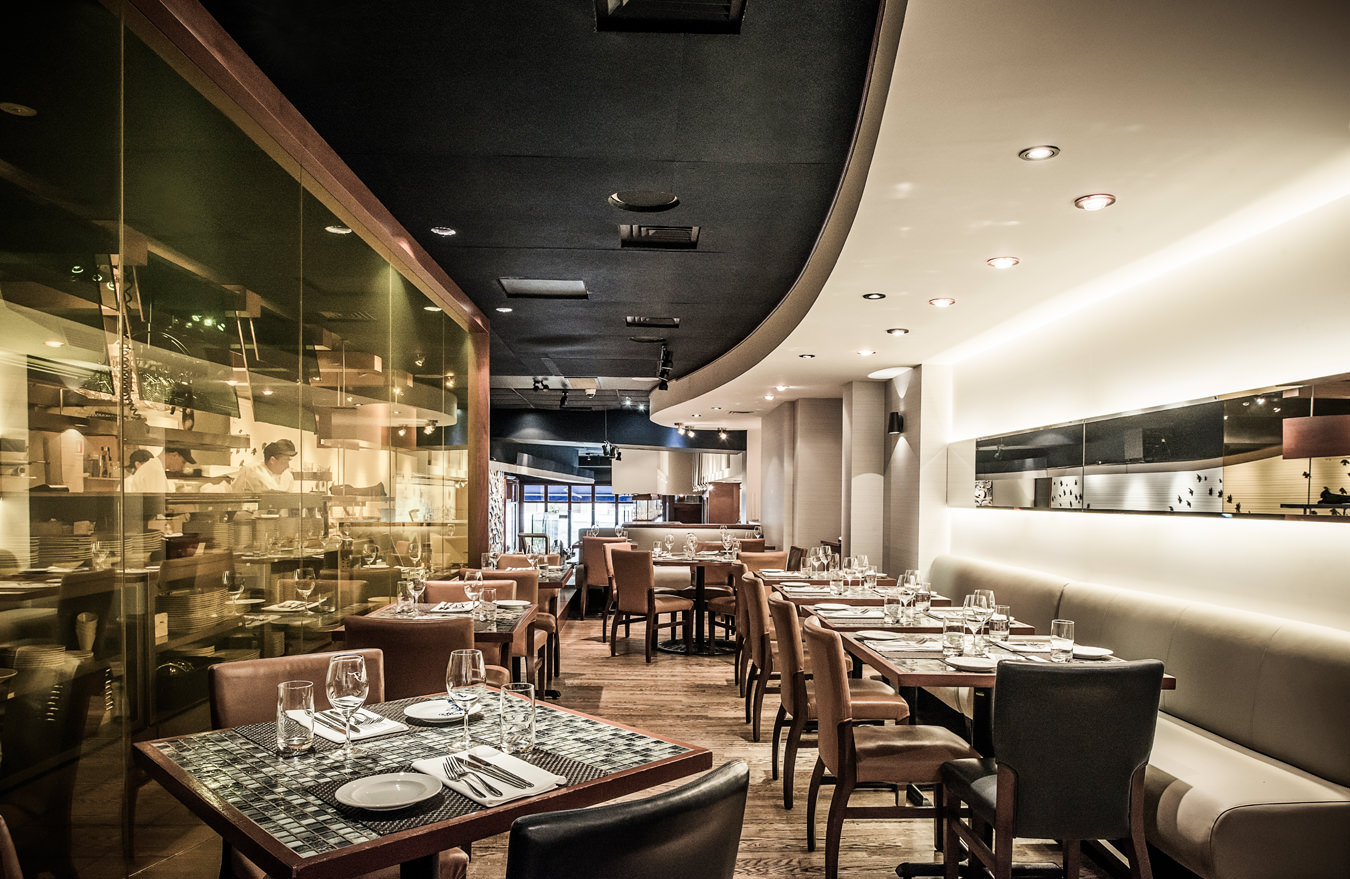
Ferreira Café was the first restaurant Carlos Ferreira opened, in 1996.
-
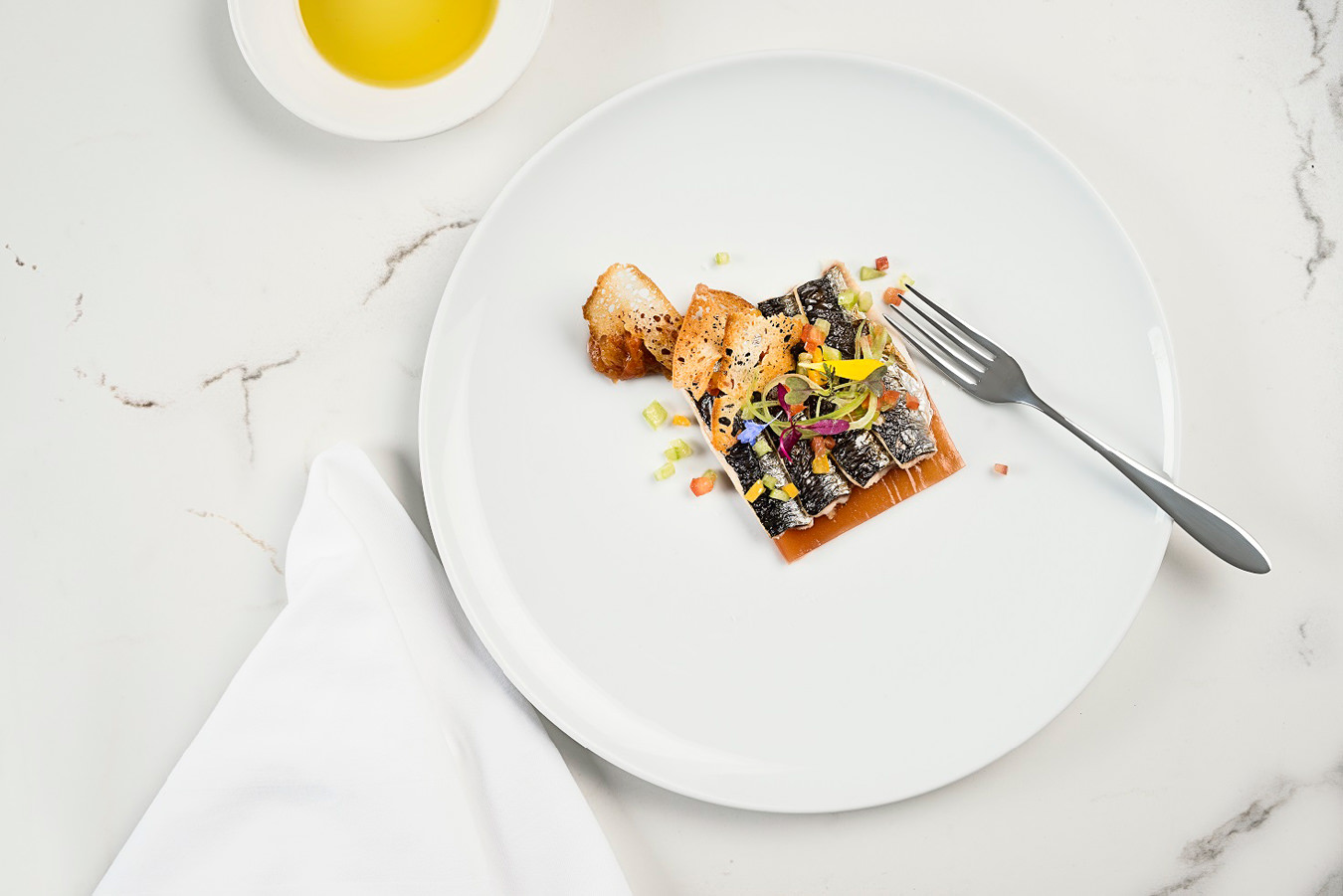
Fleur de sel–roasted sardines with a vegetable escabèche from Ferreira Café.
-
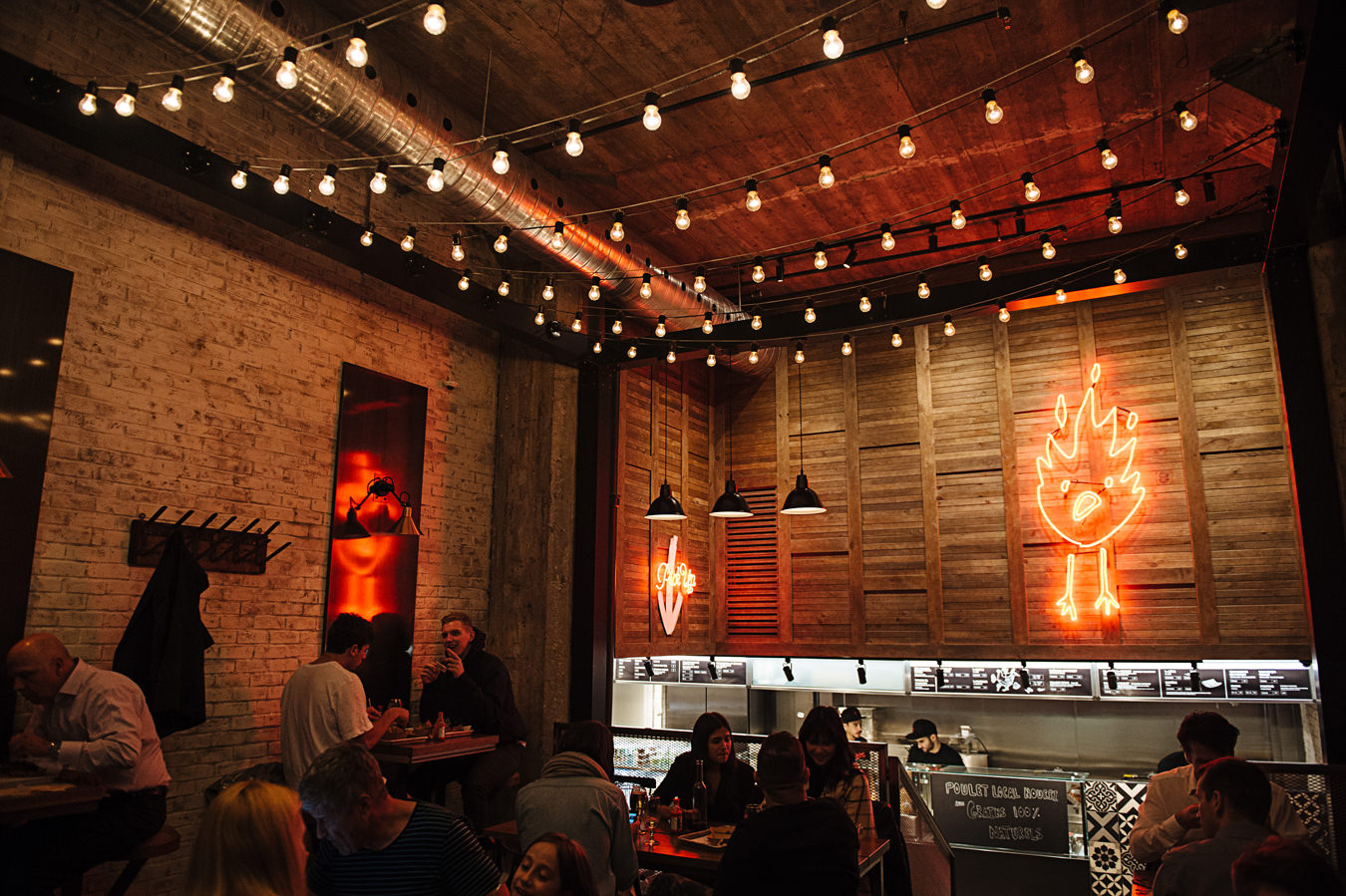
The interior of Groupe Ferreira’s Portuguese rotisserie chicken spot, Campo.
-
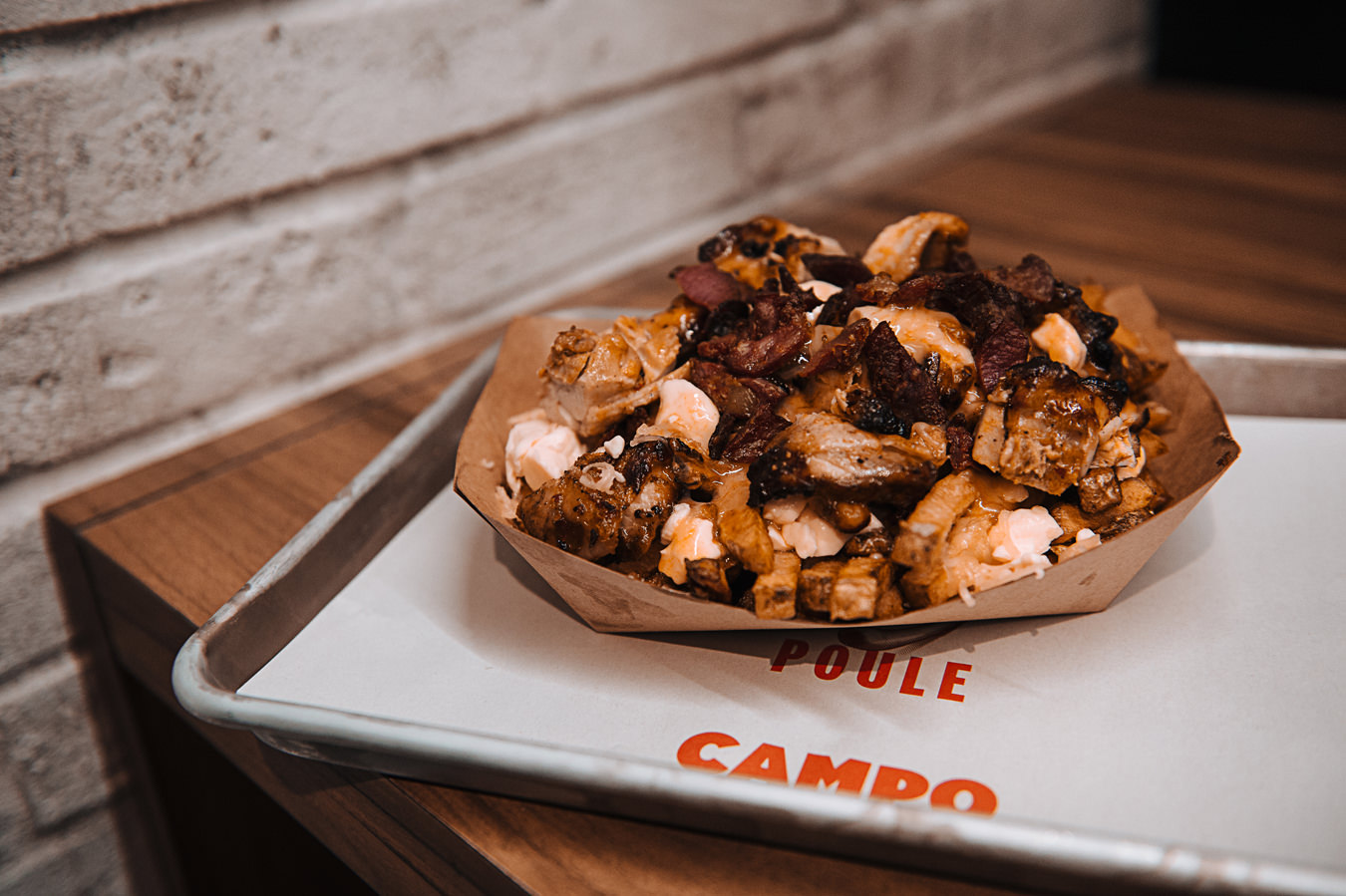
Campo’s poutine is a must-try menu item.
-
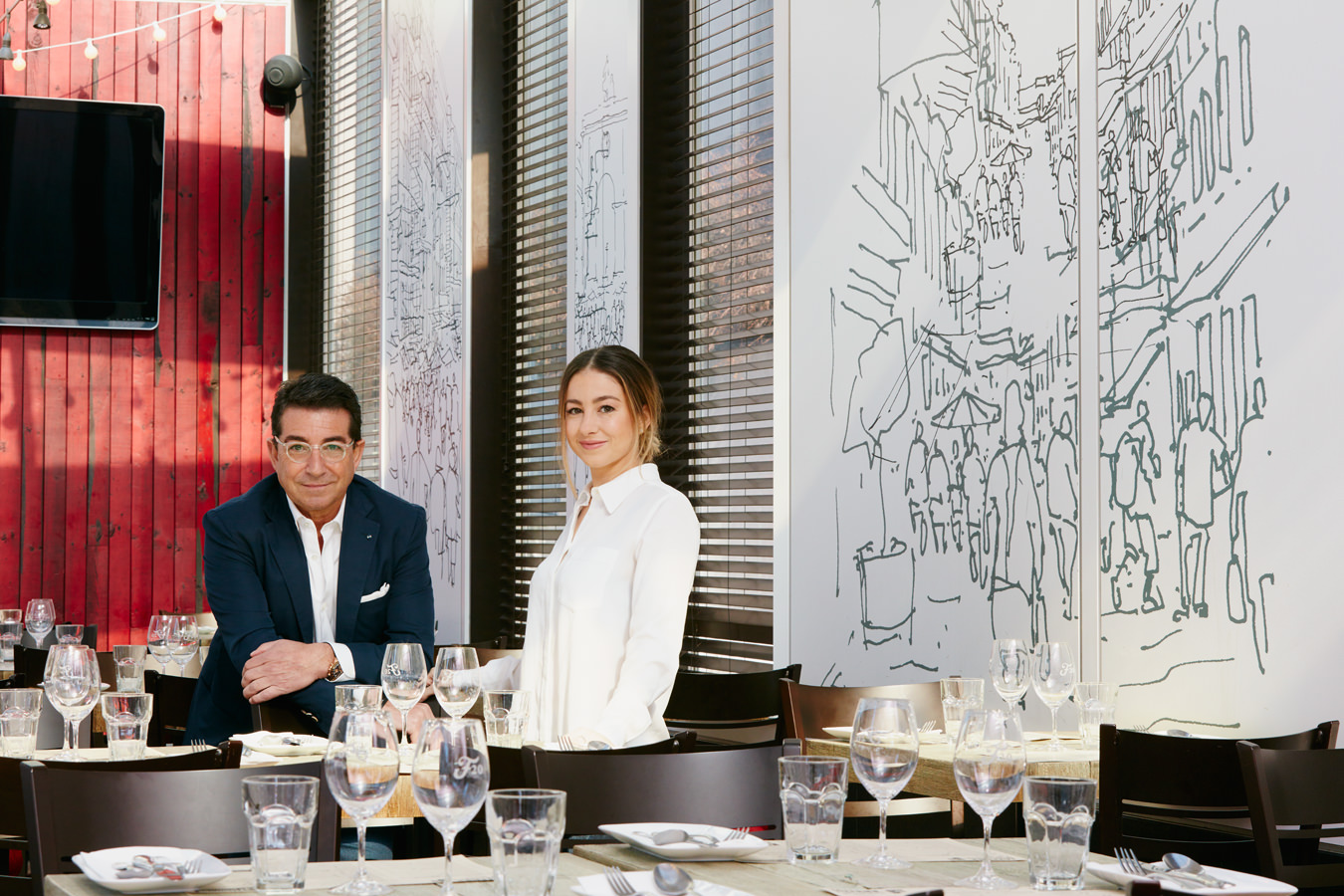
Groupe Ferreira
A taste of Portugal.
Touring the various restaurants in Montreal’s Groupe Ferreira alongside Sandra Ferreira is quite the experience. It’s a Thursday at lunch, a time when many of the city’s top restaurants are closed, but not their flagship restaurant, Ferreira Café. By noon it’s overflowing with biz types, tourists, foodies, you name it. Sandra is the daughter of owner Carlos Ferreira, 61, the legendary Montreal restaurateur who made Portuguese cuisine chic in a landscape long dominated by French and Italian fine-dining options. Celebrating its 21st anniversary this year, Ferreira Café is one of the most successful restaurants in the city centre, no mean feat when the downtown core has been losing restaurant ground to trendier neighbourhoods such as Mile End, the Plateau, Outremont, and most recently Griffintown. But Groupe Ferreira marches on with not one but four restaurants.
Besides the maison-mère, there is the elegant and casual Vasco da Gama, a favourite lunch destination renowned for its Mediterranean salads and sandwiches, excellent coffee, and irresistible custard-filled natas tarts. Farther east, within the Quartier des Spectacles, is Taverne F, a popular wine bar/restaurant where you can enjoy tapas-style plates pre- or post-performance at the neighbouring Place des Arts. And last autumn, the group launched a Portuguese rotisserie chicken spot named Campo, where, at lunchtime, lineups snake out the door—no surprise, as the chicken is delicious, the fries and poutine are scarfable, and a glass of house wine goes for $6. The space isn’t large, but besides eat in, Campo offers chicken to go and for delivery. A far cry from the elegant Ferreira Café yet only a few steps away, the group’s new chicken restaurant is a winner. It’s also Sandra Ferreira’s baby.
While moving through the various restaurants at quite a clip, Sandra, 28, points out the recently renovated open kitchen in one spot, shows me the catering kitchen above another, and explains how ingredients are stored in different walk-in refrigerators to avoid any possibility of cross-contamination. (Vasco da Gama shares a kitchen with Campo.) We greet chef João Dias, recruited from Portugal in 2013, at the kitchen pass at Ferreira Café; behind him, whole fish, large shrimp, tuna, and octopus are hitting the grill. Sandra is petite and stylish, with a sunny smile and a sweet disposition. Yet while showing me around, she notices two dish bins sitting on a service table in the dining room. She turns to a waitress, points to the bins, and without missing a beat says quietly, “Remove those.” After four years working directly with her father and 21 years on site, she knows the restaurant business inside and out. No surprise, she was made operations director for the group in 2014.
Celebrating its 21st anniversary this year, Ferreira Café is one of the most successful restaurants in the city centre.
The story of Ferreira Café’s rise on the Montreal dining scene is one of hard work, intuition, and determination. Like fellow Montreal restaurateur Costas Spiliadis of Milos fame, Carlos Ferreira saw the fine-dining potential in a so-called “ethnic” cuisine often relegated to the taverna and trattoria scene. Spiliadis showed us how Greek cuisine was more than just gyros and souvlaki, while Carlos took us beyond Portugal’s stereotypical caldo verde and grilled sardines. The main restaurant was a success from its opening in 1996, and as the decades passed, regulars noted that an increasing number of products on the table were imported from his homeland. The combination of food, wines, olive oil, and fresh seafood transported us from Canada’s French capital to Lisbon, the Algarve, Porto, the vineyards of the Douro, and beyond. Gradually Ferreira Café evolved from an ambitious restaurant with something to prove into a confident restaurant whose aspirations have been achieved and expectations met. Add a long history of charity fundraising to Carlos’s restaurant empire, and you have a man who has become one of the city’s movers and shakers.
When asked about the secret of his success, Carlos reels off three words: generosity, family, and intuition. “I am the only person in my family who came up in the restaurant business,” he says. “I made many decisions based on intuition. [In 2003] I opened Vasco da Gama because there wasn’t a sandwich place or somewhere you could buy salads made with good ingredients downtown. It has always been about feeling for me, as well as a strict attention to detail and the idea that you can always do better than the day before.”
For Sandra, however, the restaurant business is just that—a business. “My entire life, I never wanted to work in the restaurant,” she says. “I’ve always loved marketing, so after attending business school [at the University of Pittsburgh], I worked at Macy’s in New York for two years. But after a while, I thought, ‘Why don’t I work for my family brand, Ferreira, which has my name on it?’ I’m very proud of that, and I’ve always enjoyed the business aspect of the restaurant.”
As for what she’s learned from her father, Sandra doesn’t hesitate: “Generosity! I’m more cheap. With him, it’s not all about the bottom line. He’s hardworking, but he really works with feeling. I can’t believe how far he has gotten just on intuition.”
As for Ferreira père, having Sandra involved is a huge asset. “Five of my eight brothers and sisters work in my restaurants,” says Carlos, “as do my three daughters. We all get along and there is great respect. It’s a privilege to work with your family. They share your name and the loyalty runs deep, which sadly is not always the case with employees. I always wanted Sandra to work for me. Why pay for her to go to school to work for someone else? We have a great business here, a great future, over a hundred employees. And I wanted her not to only follow, but build the business. We have no debts, and our foundation is built on good relationships. She is far more organized than I am, and she can only improve on what we’ve built.”
For Sandra, working alongside her father was a natural progression. “Both my parents were in the restaurant business, but they separated when I was seven. Weekends for me meant being at my dad’s restaurant. I remember the first staff meeting, the night the doors opened [at Ferreira Café]. We followed my dad around everywhere. When I was nine, we went to Spain and drove around the country to all the Michelin-starred restaurants. It wasn’t like a vacation; it was research. He wasn’t the one who took me to soccer practice. I know my dad through work because my dad is all about work. It’s his life.”
The challenges Sandra faces with the restaurant group are very different than those her father did. It’s not so much about building an empire as expanding while maintaining their faithful clientele and attracting new customers. “I have to keep our four restaurants going,” she says. “I’m always questioning how we can appeal to my generation of customer.”
When asked about the secret of his success, Carlos reels off three words: generosity, family, and intuition.
In order to attract younger people, Sandra convinced her father to introduce a temporary dinner service on Tuesday nights where wine would be discounted by 50 per cent. And the entire concept of Campo is right on trend with lower food costs, casual dining, takeout, delivery, and especially a star product, as rotisserie chicken is undergoing a renaissance of sorts from Paris to New York to Montreal.
For her father, though, the future is directly tied to the fortunes of the surrounding city. “I ask myself not so much how we will evolve, but how Montreal will evolve,” he says. “Rents and staffing costs are sure to increase, so we are looking at how we will stay financially viable without ever neglecting quality. You will never find a farm-raised fish at this restaurant.” As for that old adage of the customer always being right, Carlos says, “You can never let a customer leave unhappy. [They’re] always right. But there must be respect.”
Carlos also plans to spend more time in Portugal, where his business interests are focused on the production of wine and olive oil. Groupe Ferreira employs some 150 people in Montreal and Portugal’s Douro Valley, where it owns 20 hectares of land including 14 hectares of vineyards and over 700 olive trees. It produces close to 45,000 bottles of wine—red, white, and sparkling—annually. Sandra and Carlos share a commitment to charity work and giving back to the community. He has long devoted time, energy, and plenty of food to several charities, chief among them Montreal’s CHU Sainte-Justine Foundation, while Sandra fundraises for Montreal’s McCord Museum Sugar Ball.
No doubt the addition of his daughter has brought a breath of fresh air to Groupe Ferreira. And watching the two of them together, whether discussing business or sharing a meal, one senses the great mutual respect they have for one another. Family business isn’t always smooth sailing, but Ferreira père sees advantages in working with his daughter. Besides her business smarts, the father/daughter relationship seems better suited to this stressful enterprise than the common husband/wife scenario. “It’s easier to work with your daughter than your wife,” says Carlos. “The conversation is over at the end of the day, and we go our separate ways. Our lives are apart.”
For Sandra Ferreira, the secret of working with her dad is their merger of business and intuition. “And,” she says with a knowing smile, “I’m very honest with him.”
Restaurant and food photos provided by Groupe Ferreira.
_________
Never miss a story. Sign up for NUVO’s weekly newsletter.






